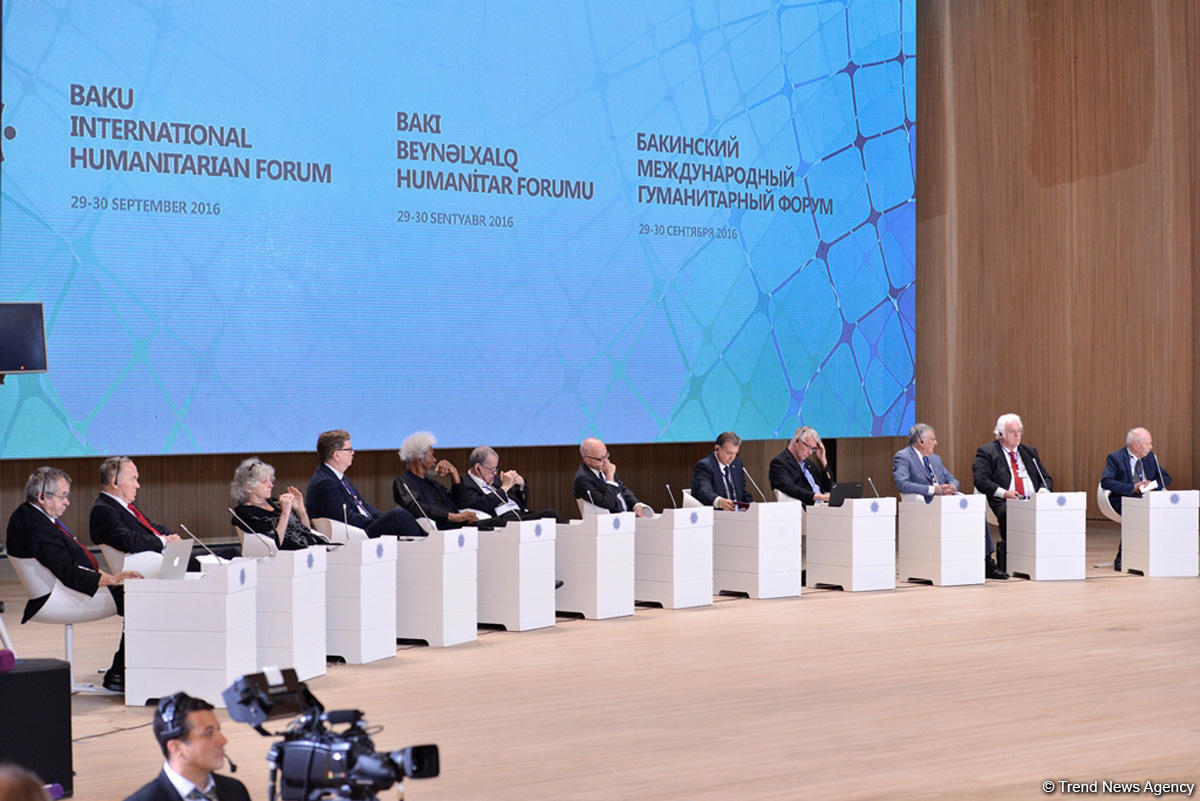Baku, Azerbaijan, Sept. 30
By Elena Kosolapova – Trend:
Azerbaijan had to accept about one million refugees and IDPs, as a result of the Armenian aggression in the early 1990s, Deputy Prime Minister and Head of the State Committee on Refugees and Internally Displaced Persons Ali Hasanov said addressing the session of the V Baku International Humanitarian Forum.
Ali Hasanov said that 20 percent of the Azerbaijani territories are still under the Armenian occupation.
He said the Azerbaijani government is taking all possible measures to ensure necessary living standards of refugees and IDPs for their integration into the society.
"Refugees and IDPs receive compensations; have benefits and state structures and companies pay special attention to their recruitment, their children are exempt from tuition fees in universities. Residential complexes, schools, kindergartens, hospitals are being built for them," Hasanov said.
He went on to add that the national legislation of Azerbaijan is in accordance with the international one.
Armenia always violates the ceasefire regime, the Geneva Convention, cultivates drugs and resettle refugees from Syria in the occupied territories of Azerbaijan, he said.
Hasanov noted that the refugee problem is important not only for Azerbaijan; the number of refugees and IDPs is growing every year in the world as a result of wars and conflicts.
A documentary film on Armenian aggression against Azerbaijan in the early 1990s also was shown during the session. The film tells about the Khojaly tragedy where 613 civilians were killed during the genocide committed by Armenia.
The film reminds that the current Armenian authority participated in the commitment of this genocide against the Azerbaijani people.
The conflict between the two South Caucasus countries began in 1988 when Armenia made territorial claims against Azerbaijan. As a result of the ensuing war, in 1992 Armenian armed forces occupied 20 percent of Azerbaijan, including the Nagorno-Karabakh region and seven surrounding districts. The 1994 ceasefire agreement was followed by peace negotiations.
Armenia has not yet implemented four UN Security Council resolutions on withdrawal of its armed forces from the Nagorno-Karabakh and the surrounding districts.






